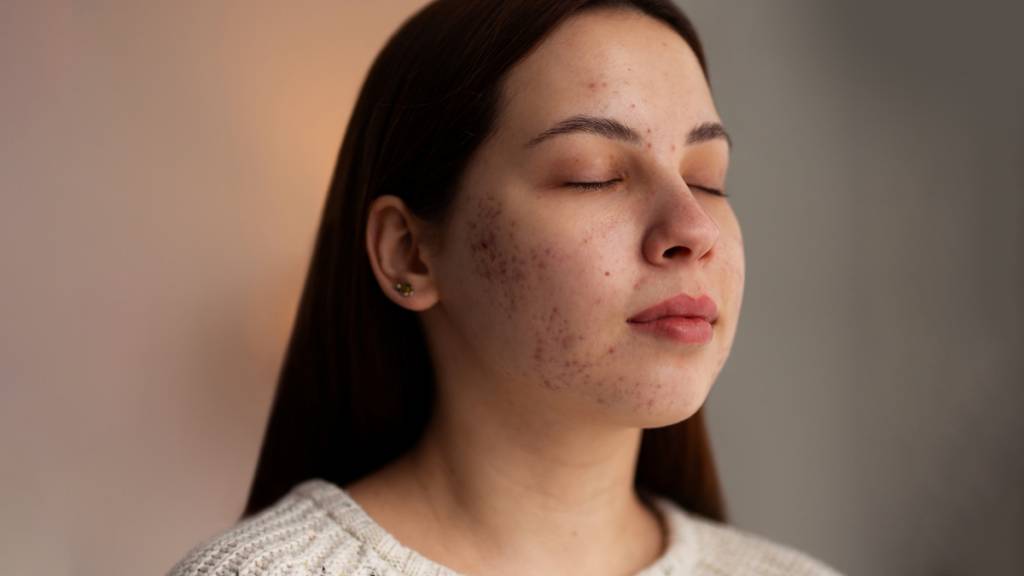All you need to know about Black Spots On The Face

Are you tired of battling stubborn black spots that mar the beauty of your complexion? Black spots, whether they’re remnants of past acne battles, signs of sun damage, or age-related pigmentation, can be a source of frustration. However, fear not! In this blog post, we’ll delve into the diverse types of black spots that can appear on your face and explore effective strategies to banish them for good. Say hello to clearer, more luminous skin!
Understanding the Enemy: Types and Causes of Black Spots
Before embarking on your journey to clearer skin, it’s essential to understand the enemy you’re up against. Black spots can manifest in various forms, each with its own set of causes.
Acne Scars: Those pesky reminders of past breakouts, and acne scars result from inflammation and tissue damage caused by acne lesions. Even after the pimple has faded, the scar remains, leaving behind a dark spot that can linger for months.

Hyper-pigmentation: Hyper-pigmentation occurs when there’s an overproduction of melanin, the pigment responsible for skin colour. This excess melanin can lead to the formation of dark patches or spots on the skin, often triggered by factors like sun exposure, hormonal changes, or skin injuries.
Sun Damage: Prolonged exposure to the sun’s harmful UV rays can wreak havoc on your skin, causing freckles, sunspots, and uneven pigmentation. These dark spots are a result of the skin’s defence mechanism against UV damage, leading to localized melanin production.
Age Spots: Also known as liver spots or solar lentigines, age spots are a common sign of ageing skin. They typically appear as flat, brown, or black spots on areas of the skin that have been exposed to the sun over the years.
FAQ’s
Q: What are the different types of black spots on the face, and how can I effectively remove them?
A: Black spots on the face can be frustrating, but understanding their causes and treatment options can help you achieve clearer, more radiant skin. Here’s a breakdown of the various types of black spots and ways to address them:
Q: What causes black spots on the face?
A: Black spots on the face can stem from different factors, including acne scars, hyper pigmentation, sun damage, and age spots. Acne scars result from inflammation and tissue damage caused by acne breakouts. Hyper-pigmentation occurs when melanin production is overstimulated, leading to dark patches or spots on the skin. Sun damage, particularly from prolonged exposure without protection, can manifest as freckles or larger sunspots. Age spots, or liver spots, are commonly associated with ageing and prolonged sun exposure.
Q: How can I effectively remove black spots on my face?
A: There are various approaches to tackling black spots on the face, depending on their cause and severity. Topical treatments containing ingredients like retinoids, hydroquinone, or vitamin C can help lighten hyperpigmentation and fade dark spots over time. These ingredients work by promoting cell turnover and inhibiting melanin production. Chemical peels and microdermabrasion are professional treatments that exfoliate the skin and can reduce the appearance of black spots by stimulating collagen production and revealing fresh, evenly toned skin underneath. Laser therapy targets melanin in the skin, breaking up pigmented cells and encouraging the growth of new, healthier skin cells. Additionally, daily sun protection with a broad-spectrum sunscreen is essential to prevent further darkening of existing spots and protect against the formation of new ones.
Q: When should I consult a dermatologist for black spots on my face?
A: If over-the-counter treatments are not providing satisfactory results or if you have concerns about the severity or appearance of your black spots, it’s advisable to consult a dermatologist. At IKSANA WELLNESS, Dr. Aparajita Lamba, MD dermatologist, diagnoses and provides excellent treatments for various skincare issues, including black spots. Dr. Lamba can assess your skin condition, identify the underlying causes of your black spots, and recommend personalized treatment options tailored to your specific needs. They may also perform procedures like chemical peels, microdermabrasion, or laser therapy to achieve optimal results safely and effectively.
By understanding the causes of black spots on the face and exploring appropriate treatment options, you can take proactive steps toward achieving clearer, more luminous skin. Remember to be patient and consistent with your skincare routine, and don’t hesitate to seek professional advice if needed.



